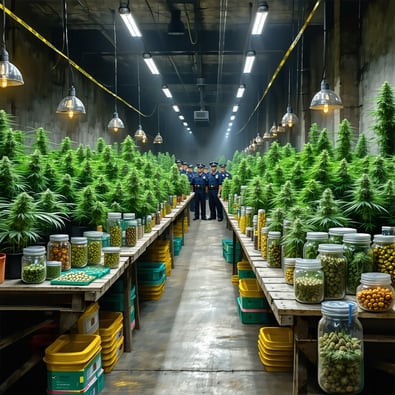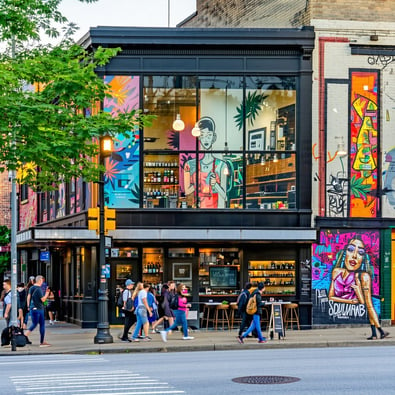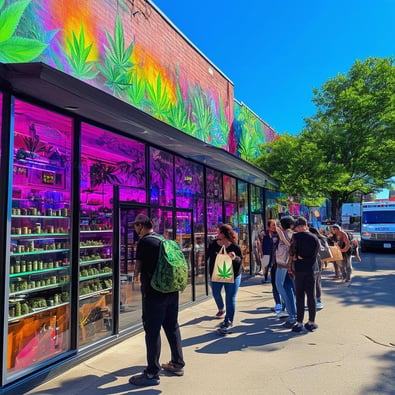Beginning July 1, California’s cannabis excise tax will rise from 15% to 19%—a move that’s drawing concern from both cannabis business owners and customers. As inflation continues to impact everyday living expenses, many worry the increase could push more consumers toward the illegal market, further straining a legal cannabis industry already struggling to remain competitive.
In cities like Manteca, where cannabis retail is still relatively new, local dispensaries like Off the Charts are feeling the pressure. On Monday, the store saw a surge in customers stocking up before the new excise tax kicks in. Store manager Lauren Nair says they’re doing what they can to retain loyal customers, but the excise tax increase makes that harder.
“We’re trying to sympathize with them because 4% is not a little bit. It'll be on every product they purchase, so it’ll be a hefty amount,” Nair said.
The increased excise tax means an average customer—who typically spends between $120 to $140 per visit—will pay about $5 more per transaction. For some, like customer Miguel Gutierrez, the price bump is enough to consider other options, including the black market.
“It adds up, especially with everything else going up,” Gutierrez said. “Why pay more when you can get it cheaper elsewhere?”
That’s the concern many in the industry share. California already taxes cannabis at some of the highest rates in the nation, and the illicit market continues to thrive because of it. Legal operators say they’re trying to stay afloat by offering daily deals and promotions, but it’s a difficult balancing act when competing with untaxed and unregulated sellers.
The California Department of Tax and Fee Administration says the hike is mandated by law. Under current regulations, the state must reassess and adjust the cannabis excise tax every two years. However, not everyone believes the increase is the right move.
Assembly Bill 564, currently under legislative review, proposes capping the excise tax at 15%. Advocates for the bill argue that lowering and stabilizing tax rates would encourage more participation in the legal market, helping both businesses and the state’s tax base in the long run.
“Taxes are part of the business, but we’re always trying to do right by our customers,” she said. “We just hope the state sees how this affects the entire industry.”





